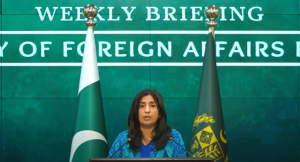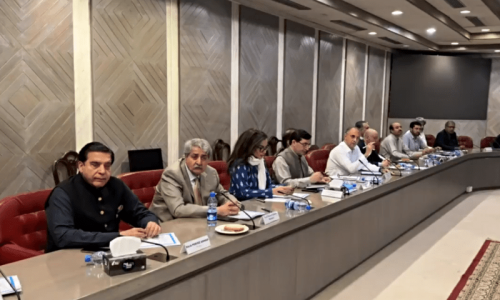JOHANNESBURG: A record drought that has devastated crops across southern Africa, causing millions of people to go hungry and pushing five countries to declare a national disaster, is entering its worst stage, the UN has warned.
The United Nations World Food Programme (WFP) said it expected the number of people struggling to put enough food on the table to increase as the lean season, the period between harvests when food is scarcest, gets underway.
“The worst period comes now,” WFP’s acting regional director for southern Africa, Lola Castro, said.
“People haven’t been able to pick anything and the problem is the next harvest is only in April 2025.” The small kingdom of Lesotho became two weeks ago the latest country to declare a state of national disaster over the El Nino-induced dry spell, after Malawi, Namibia, Zambia, and Zimbabwe.
Other countries, like Angola and Mozambique, might follow soon or signal a gap between the food they have and the food they need, said Castro. According to some estimates, the drought is the worst to hit the region in 100 years, she said.
‘Dry and down’
At least 27 million people have been affected in a region where many rely on agriculture to survive, Castro said, speaking from WFP’s office in Johannesburg on Friday. The drought has wiped out 70 per cent of the harvest in Zambia and 8pc in Zimbabwe, severely reducing supply and pushing up food prices, she said. “When you go now to rural productive areas of Southern Africa, what you see is a devastated scenario,” she said.
“The maize is totally dry and down, it hasn’t grown, and the people are really trying to find what to do next, to be able to feed their families.” Although the El Nino cycle has come to an end, its effects persist. In some countries the lean season was starting well ahead of time, Castro said.
“The situation is extremely worrisome,” she said. “We cannot talk about famine or hunger but people cannot buy adequate meals or eat an adequate number of calories per day. Children start getting slimmer, the population starts suffering.” The WFP was working with local governments to mitigate the effects of the lack of rain.
It is encouraging farmers to plant more drought resistant crops like sorghum, millet and cassava to fend off future dry spells and has appealed for $409 million to provide food, cash and other assistance, to about six million people in the region. It has so far received about $200 million, Castro said.
El Nino is a recurring natural weather phenomenon corresponding to the large-scale warming of surface temperatures in the central and eastern equatorial Pacific Ocean, which leads to drought conditions in some regions of the world and excessive rain in others.
Published in Dawn, July 28th, 2024















































Dear visitor, the comments section is undergoing an overhaul and will return soon.